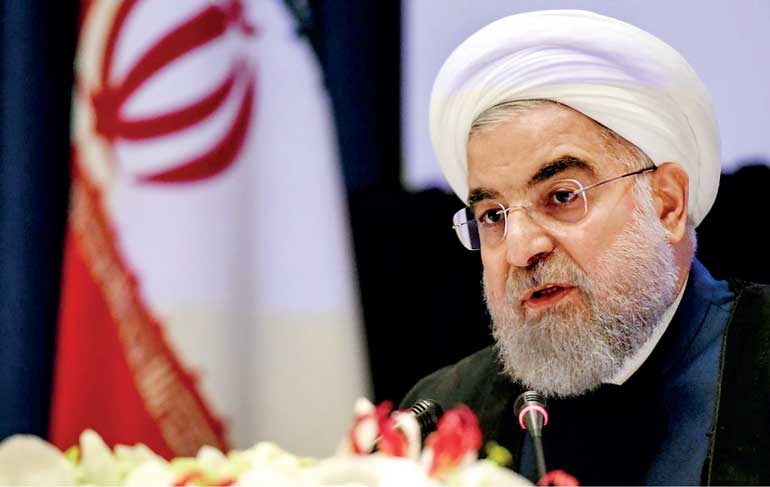Tuesday Feb 17, 2026
Tuesday Feb 17, 2026
Monday, 5 February 2018 00:00 - - {{hitsCtrl.values.hits}}
Dubai (Reuters): Iran accused the United States on Sunday of threatening Russia with new atomic weapons after Washington published a document outlining plans to expand its nuclear capabilities to deter others.

Iran's President Hassan Rouhani
The review of US nuclear policy published on Friday has riled Russia, which viewed the document as confrontational, and raised fears that it could increase the risk of miscalculation between the two world powers.
“The Americans are shamelessly threatening Russia with a new atomic weapon,” Iranian President Hassan Rouhani, a pragmatist who opened the way to Tehran’s 2015 nuclear deal with world powers including longtime adversary Washingon, said in a speech.
“The same people who supposedly believe that using weapons of mass destruction is a crime against humanity ... are talking about new weapons to threaten or use against rivals,” he said in his televised address.
Foreign Minister Mohammad Javad Zarif earlier warned in a tweet that the US policy document posed the risk of “bringing humankind closer to annihilation”.
The US military has put countering China and Russia, dubbed “revisionist powers”, at the centre of a new national defence strategy unveiled earlier this month shifting priorities away from fighting Islamist militants.
By expanding its own low-yield nuclear capability, the United States would deter Russia from using nuclear weapons, according to American officials.
Zarif also said in his tweet: “(U.S. President Donald)Trump’s obduracy in killing the #JCPOA (Iran’s nuclear deal with world powers) stems from the same dangerous imprudence”.
Trump gave the Iran nuclear deal, negotiated before he took office, a final reprieve last month but warned European allies and Congress they had to work with him to fix “the disastrous flaws” in the pact or face a US exit.
He said he would waive sanctions against Iran that were lifted as part of the international deal for the last time unless his conditions were met.
The ultimatum put pressure on European Union powers - key backers and parties to the 2015 international agreement to curb Iran’s nuclear program – to satisfy Trump, who wants the pact strengthened with a separate agreement.